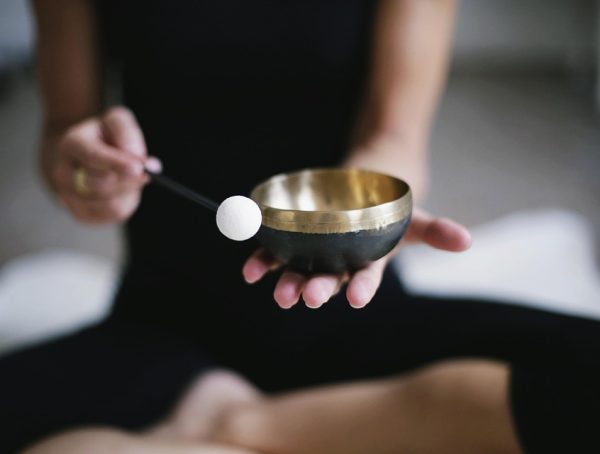Transform Your Mind: Effective Meditation Techniques for Anxiety
In today’s fast-paced world, anxiety has become a common experience for many individuals. The demands of work, family, and social obligations can often feel overwhelming, leading to stress and anxiety. However, there is a powerful tool that we can harness to help alleviate these feelings: meditation. This article explores effective meditation techniques specifically aimed at reducing anxiety, while also providing actionable steps for you to implement them in your daily life.
Understanding Meditation
Meditation is a practice that involves focusing the mind to achieve a state of clarity, emotional calmness, and inner peace. While often associated with spirituality, meditation is a secular practice that can significantly enhance mental health. Research has shown that regular meditation can reduce symptoms of anxiety and improve overall well-being. It aids in increasing awareness, fostering acceptance, and cultivating a more positive mindset.
The Science Behind Meditation and Anxiety
Scientists have studied the impacts of meditation on anxiety extensively. When practiced regularly, meditation can lead to changes in brain structure and function. Neuroimaging studies have shown increased activity in the prefrontal cortex (responsible for higher-order thinking) and decreased activity in the amygdala (the brain’s fear center). This shift can result in lower levels of anxiety and stress. Furthermore, meditation promotes mindfulness, a state of being present and fully engaged, which helps us detach from anxious thoughts and worries about the future.
Effective Meditation Techniques for Anxiety
Here are several meditation techniques that are particularly effective for alleviating anxiety:
1. Mindfulness Meditation
Mindfulness meditation encourages you to focus on the present moment. By observing your thoughts, emotions, and bodily sensations without judgment, you can begin to understand that anxiety is a passing state of mind.
Action Steps:
- Find a quiet place and sit comfortably.
- Close your eyes and take a few deep breaths to center yourself.
- Focus on your breath. Notice the rise and fall of your chest or the feeling of air entering and exiting your nostrils.
- When your mind wanders, gently redirect your focus back to your breath without self-judgment.
- Practice for 5-10 minutes daily, gradually increasing the time as you become more comfortable.
2. Guided Imagery
Guided imagery is a technique where you visualize a peaceful scenario or environment. It employs all of your senses to transport you to a calming place, which can reduce anxiety and induce relaxation.
Action Steps:
- Choose a comfortable position in a quiet environment.
- Close your eyes and focus on your breath.
- Imagine a peaceful scene, such as a beach or forest. Use all your senses to create a vivid picture: what do you see, hear, smell, and feel?
- Standardize your practice by dedicating time every day to visualize this calming scenario.
3. Loving-Kindness Meditation
This technique focuses on cultivating compassion and love, both for yourself and others. By repeating phrases of goodwill towards yourself and others, you can alleviate feelings of anxiety and foster a sense of connection.
Action Steps:
- Sit comfortably and close your eyes.
- Bring to mind someone you love and focus on sending them well-wishes such as "May you be happy, may you be healthy."
- Gradually extend these thoughts to others—friends, acquaintances, and even those you may have difficulties with.
- Finally, include yourself in this circle of goodwill.
4. Body Scan Meditation
This meditation technique promotes deep relaxation by focusing attention on different parts of the body, helping to relieve tension and anxiety.
Action Steps:
- Lie down comfortably on your back in a quiet space.
- Start with your toes. Focus on how they feel—are they tense, relaxed, or numb?
- Gradually move your attention upward through your feet, legs, abdomen, chest, arms, neck, and finally to your head, noticing sensations or areas of tension.
- Take deep breaths, imagining breathing in relaxation and breathing out tension.
Tips for Integrating Meditation into Your Daily Routine
-
Start Small: If you are new to meditation, don’t overwhelm yourself. Begin with just a few minutes each day and build your practice slowly.
-
Create a Sacred Space: Designate a specific spot in your home for meditation. Make it inviting with comfortable seating and elements that soothe you, such as plants, candles, or essential oils.
-
Be Consistent: Establish a consistent time for meditation, whether it’s morning, afternoon, or evening. Routine helps in forming a lasting habit.
-
Use Technology: Consider using meditation apps or online resources to find guided sessions. There are countless resources available that can help facilitate your practice.
- Be Patient and Kind to Yourself: Meditation is a skill—like any other, it takes time to develop. Don’t be critical of yourself if you find it challenging at first.
Conclusion
Meditation offers a pathways to transform your mind and alleviate feelings of anxiety. By practicing mindfulness, guided imagery, loving-kindness, or body scan meditations, you can cultivate a sense of peace and resilience. As you embark on this journey, remember that it’s not only about the destination but also about enjoying the process of fostering a deeper connection with yourself.
"The mind is everything. What you think you become." — Buddha
If you found this article helpful and want to explore more about mental wellness and personal growth, feel free to follow Kevin on Instagram (@KSteineman) for regular uplifting content!
You might also like
More from Meditation
The Role of Mantras in Transcendental Meditation: A Deep Dive
The Role of Mantras in Transcendental Meditation: A Deep Dive Transcendental Meditation (TM) has garnered a significant following across the globe, …
The Science Behind Meditation: Improving Mental Health Naturally
The Science Behind Meditation: Improving Mental Health Naturally In today's fast-paced world, the pursuit of mental wellness has become paramount. Thousands …
Understanding the 7 Types of Meditation for Beginners
Understanding the 7 Types of Meditation for Beginners: A Path to Inner Peace Meditation has become a popular practice in recent …


































